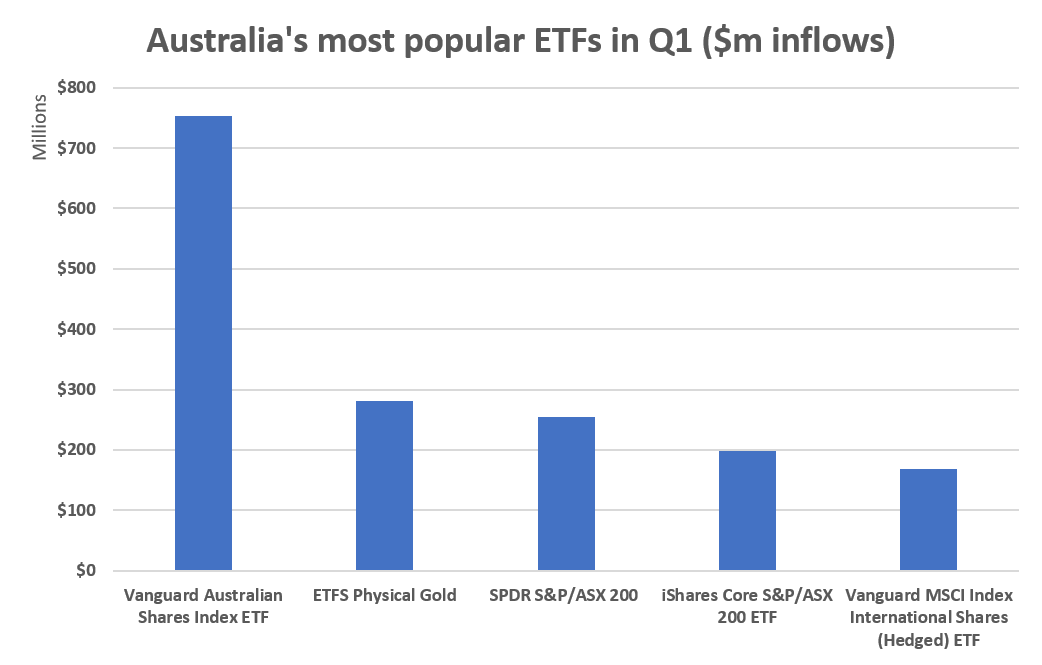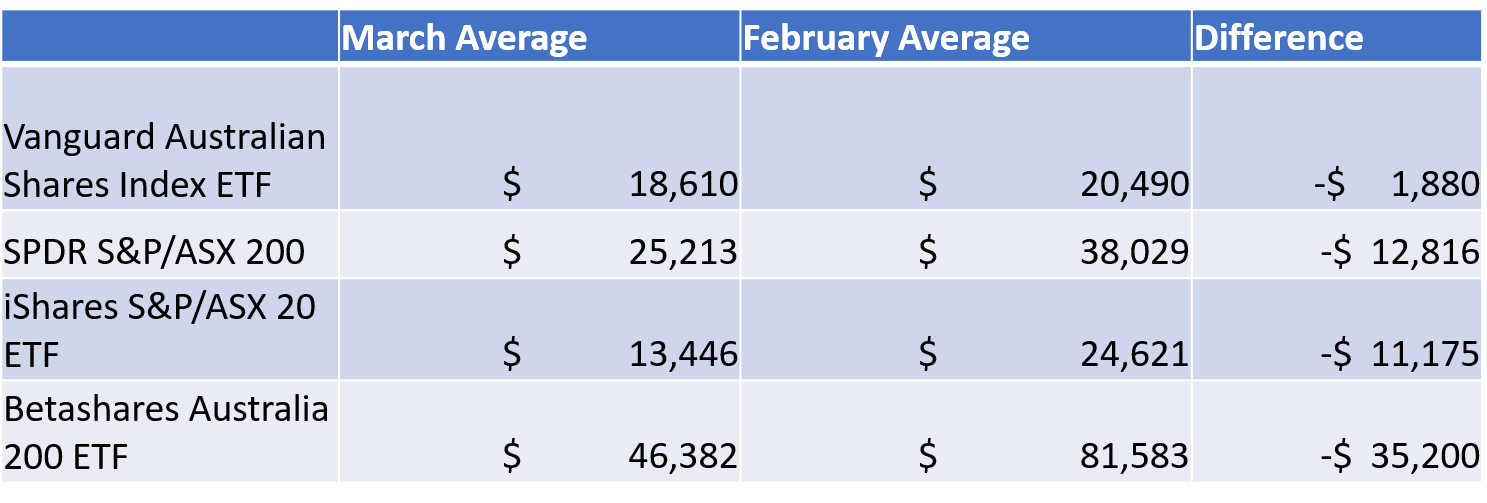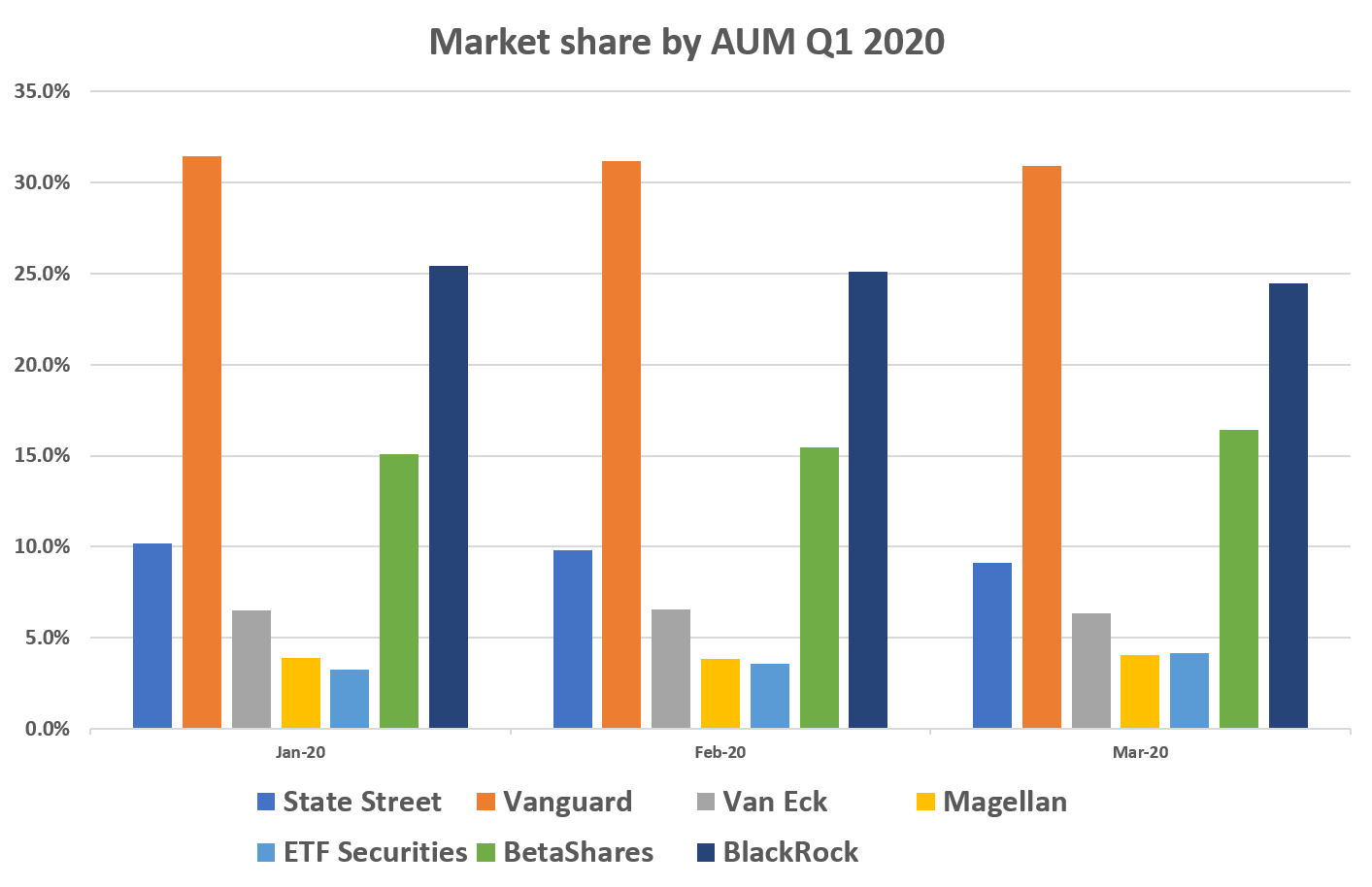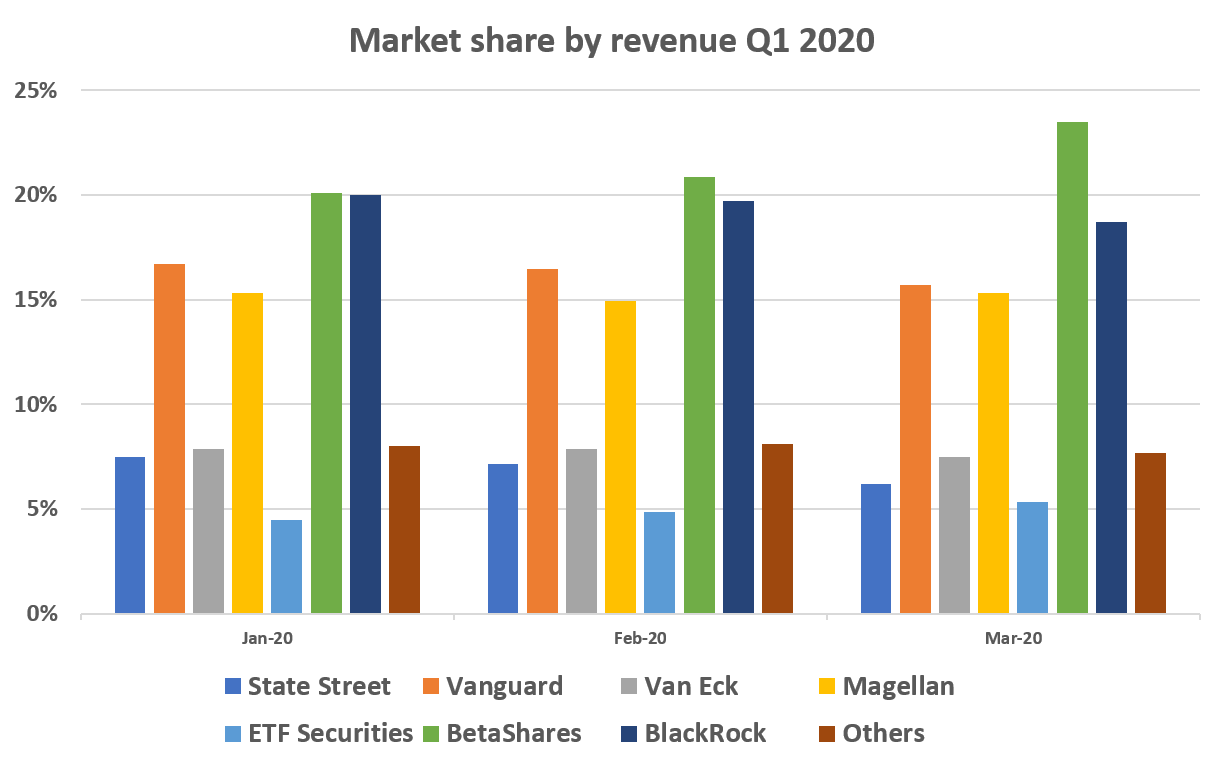Vanguard and BetaShares cut ahead of the competition in the first quarter of 2020, taking in more than 60% of all new ETF money, ASX data indicates.
Industry-eating Vanguard took 40% all by itself, continuing its domination of the Australian market while an insurgent BetaShares slurped up another 20%.

Source: ASX, ETF Stream
The surge for both providers was driven by dip buying – much of which was conducted by mum and dad retail investors.
Thinking the coronavirus crash would only be temporary, many households saw the -35% collapse in share prices as a once in a decade opportunity to buy. While many professional asset managers hesitated, retail investors with longer time horizons jumped in.
Australian ETF investors are buying the dip
Evidence of dip buying comes from the fact that most new ETF money went into shares ETFs – which had fallen most in value.
Meanwhile, cash and bond ETFs – usually thought to be safe havens, or diversifiers – saw more money exit than enter.
Evidence of a retail footprint comes from the average transaction sizes, which declined across the board. When retail investors buy shares and ETFs they tend to do so in much smaller parcels than institutions, as they're managing less money.
Average transaction sizes declined in March - suggesting retail buyers

Source: ETF Stream, ASX
It is not clear if any of the money that exited bond ETFs owed to investor dissatisfaction with the discounts that bond ETFs traded on.
According to Vanguard, much of the buying was due to investors’ belief that share returns would be higher after the dip.
“As March rounded out, we saw opportunistic buying activity with the lower prices in Australian equity ETFs,” Minh Tieu, head of capital markets at Vanguard Australia, said.
The group added that equity returns could be as high result of the correction in March. So a re-allocation to shares makes sense, given the lower prices resulting from the sell off.
On a market share basis, existing ETF industry trends accelerated in Q1. BetaShares' market share grew further, on both an assets under management and revenue basis. According to ETF Stream calculations, BetaShares now makes more monthly revenue than any other ETF provider.

Source: ASX, ETF Stream
On the revenue front, BetaShares was given a leg up by the bear market and oil crash, which helped drive asset growth in its higher margin bear and oil funds.
Vanguard chose to take less revenue market share this year thanks to generous fee cuts on its flagship VAS, VEU and VTS funds introduced late last year. This meant that despite strong asset growth in its headline ETFs, the group’s revenue share shrank. Vanguard’s decision to make less money owes to its not-for-profit structure, which means investors who own Vanguard’s ETFs also own the funds.
The Aussie ETF providers that made it rich in 2019
Vanguard’s AUM market share decline owes partly to the fact that the group provides no “alternatives” ETFs. These include funds that track commodities – like oil and gold – as well as absolute return or inverse funds. Alternatives provide a useful hedge to protect fund managers' total AUM during down markets.

Source: ETF Stream, ASX
However, as much of the asset growth for Vanguard’s funds in Q1 was in its equity ETFs, if the share market continues rebounding Vanguard could emerge stronger than ever and with even more market share.
Among products, the most popular were Australian shares ETFs. Vanguard’s Australian Shares Index ETF (VAS) cemented itself as the most popular ETF in the country. Bringing in three times as much assets as the next most popular ETFs.
VAS overtook State Street’s STW – the country’s first ETF, and previously the most popular – in funds under management last year and has never looked back.
Sign up to ETF Stream’s weekly email here
***
Image: Frank Kolimago, managing director of Vanguard Australia. Source: Supplied





